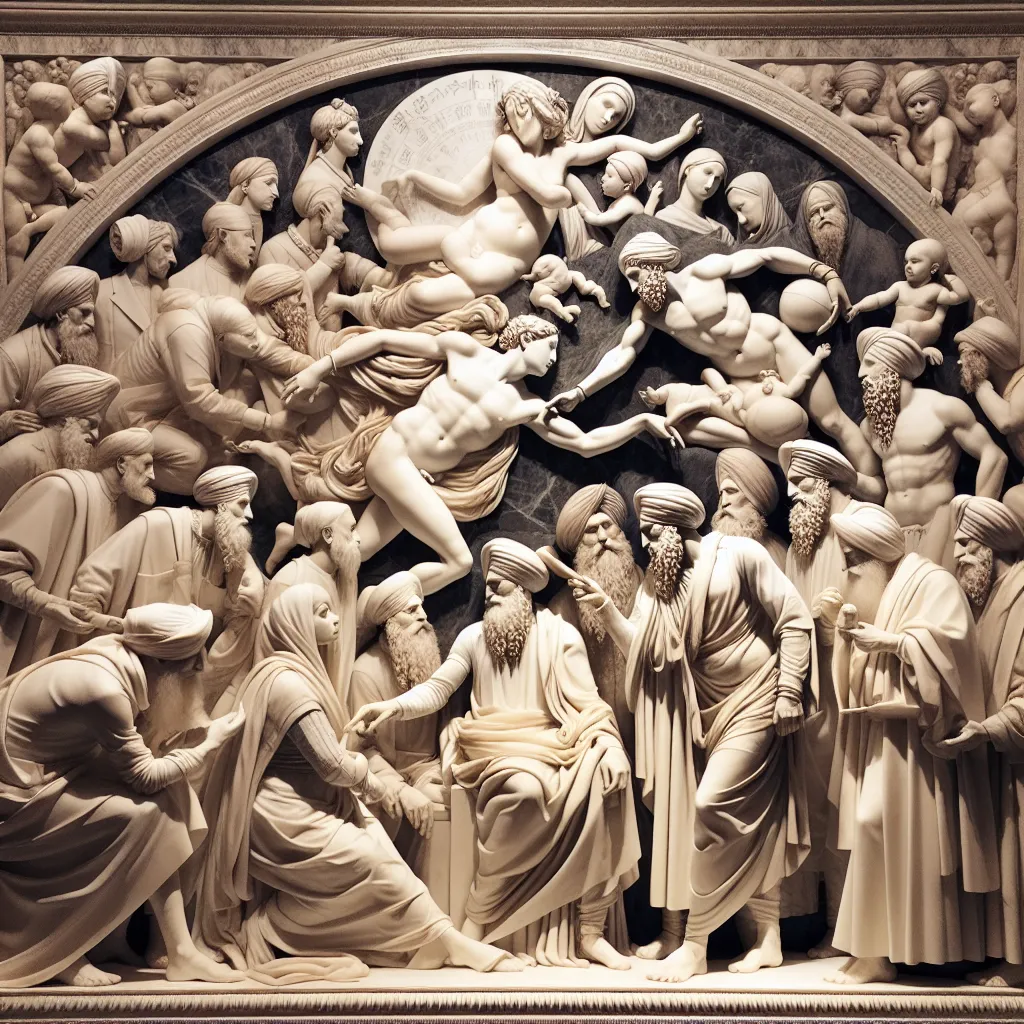
- Published on
- Authors

- Name
- You
The Sikh Diaspora: Maintaining Identity and Culture Abroad
The Sikh diaspora spans across continents, shaping communities while simultaneously grappling with the challenges of preserving their rich cultural and religious heritage. In this article, we explore the experiences of the Sikh diaspora, the dual challenges of assimilation and cultural preservation, and the significant contributions of Sikhs around the world.
Historical Context
The roots of Sikhism trace back to the early 15th century in Punjab, India, founded by Guru Nanak Dev Ji. Over time, numerous socio-political events triggered waves of migration, leading to the establishment of Sikh communities globally. Key historical milestones include:
| Era | Event | Impact |
|---|---|---|
| Early 20th century | British colonial period | Recruitment as soldiers and laborers, leading to settlement in East Africa and Southeast Asia. |
| Mid 20th century | Partition of India (1947) | Mass migration to Britain, Australia, Canada, and the United States. |
| Late 20th century | Economic opportunities and political asylum | Surge in migration to Western Europe, North America, and parts of the Middle East. |
Cultural Practices and Identity
Religious Observances
Maintaining religious practices is central to Sikh identity. Daily prayers (Nitnem), wearing the Five Ks, and regular attendance at Gurdwaras (Sikh temples) serve as cultural touchstones.
| Five Ks | Description |
|---|---|
| Kesh | Uncut hair, symbolizing respect for the perfection of God’s creation. |
| Kangha | A wooden comb, representing cleanliness and order. |
| Kara | A steel bracelet, denoting restraint and a connection to the Guru. |
| Kachera | Cotton undergarments, symbolizing self-discipline. |
| Kirpan | A ceremonial sword, embodying the duty to uphold justice. |
Language and Education
Sikhs emphasize teaching their native language, Punjabi, and Gurmukhi script to younger generations. Weekend schools and cultural workshops in diasporic Gurdwaras contribute significantly to this endeavor.
Festivals and Celebrations
Cultural celebrations such as Vaisakhi, Guru Nanak Gurpurab, and Diwali are essential communal bonding events that reinforce Sikh values and traditions.
Challenges Faced by the Sikh Diaspora
While Sikh communities thrive, they face numerous challenges:
Assimilation Vs. Preservation
Balancing integration into host societies with the preservation of cultural and religious practices can be a tightrope walk. Issues such as racial profiling, discrimination, and cultural misunderstandings often arise.
Identity Crisis Among Youth
Younger generations, particularly in Western societies, may experience an identity crisis, torn between the traditional values of their heritage and the liberal norms of their surroundings.
Economic and Social Integration
Economic integration often means adapting to new professional landscapes while retaining cultural values. Social integration also involves overcoming stereotypes and building inclusive communities.
Contributions of Sikh Communities Globally
Despite these challenges, the Sikh diaspora has made noteworthy contributions:
Philanthropy and Community Service
Grounded in the principle of 'Seva' (selfless service), Sikhs actively engage in charitable work, from running free community kitchens (Langar) to disaster relief efforts.
Professional and Academic Achievements
Sikhs have made significant strides in various fields such as medicine, academia, technology, and entrepreneurship, contributing to the socio-economic fabric of their host countries.
Cultural Ambassadors
Through cultural festivals, interfaith dialogues, and representation in local governments, Sikhs act as ambassadors of their rich heritage, promoting multiculturalism and understanding.
Conclusion
The Sikh diaspora continues to navigate the complexities of cultural preservation and assimilation with remarkable resilience. Their enduring commitment to their traditions, coupled with their contributions to global societies, underscores their unique role in enriching the global cultural mosaic. As we look to the future, the experiences of the Sikh diaspora offer valuable lessons in identity, community, and coexistence.
By intertwining mystical wisdom with advanced knowledge, we can better understand the unique journey of the Sikh diaspora and appreciate the profound impact they have on the world stage.
